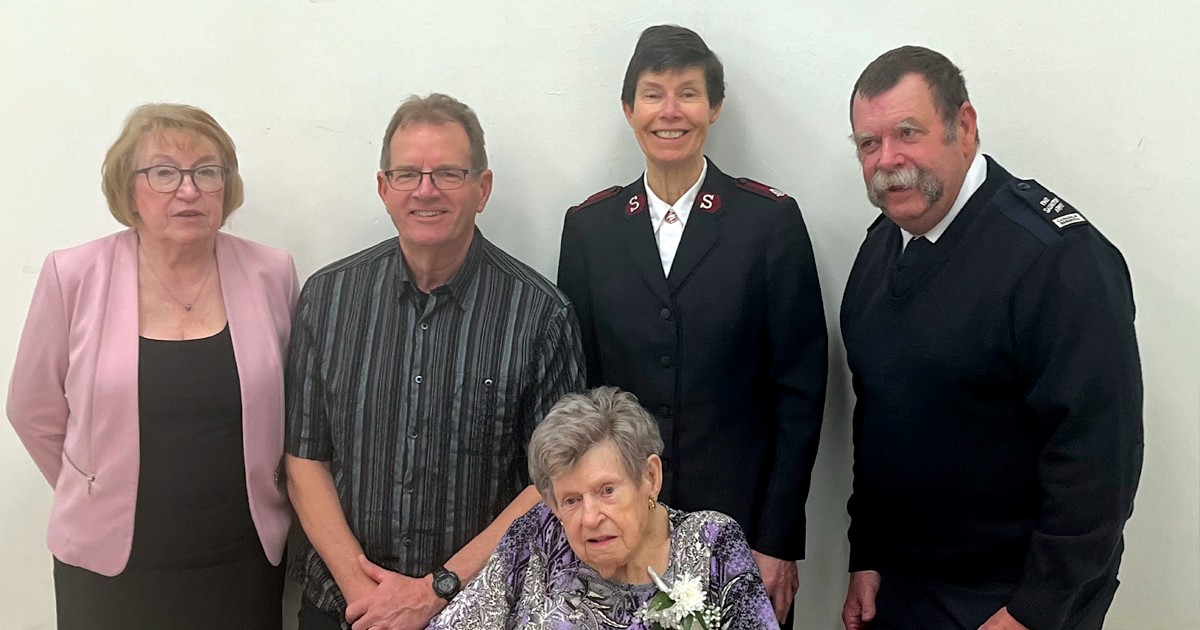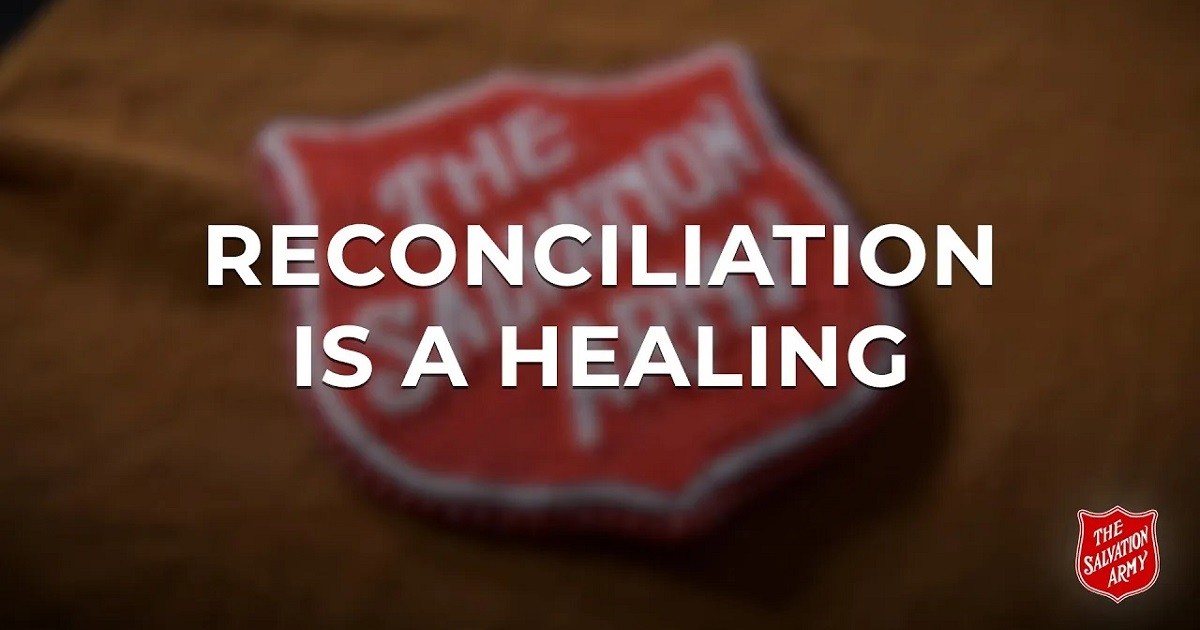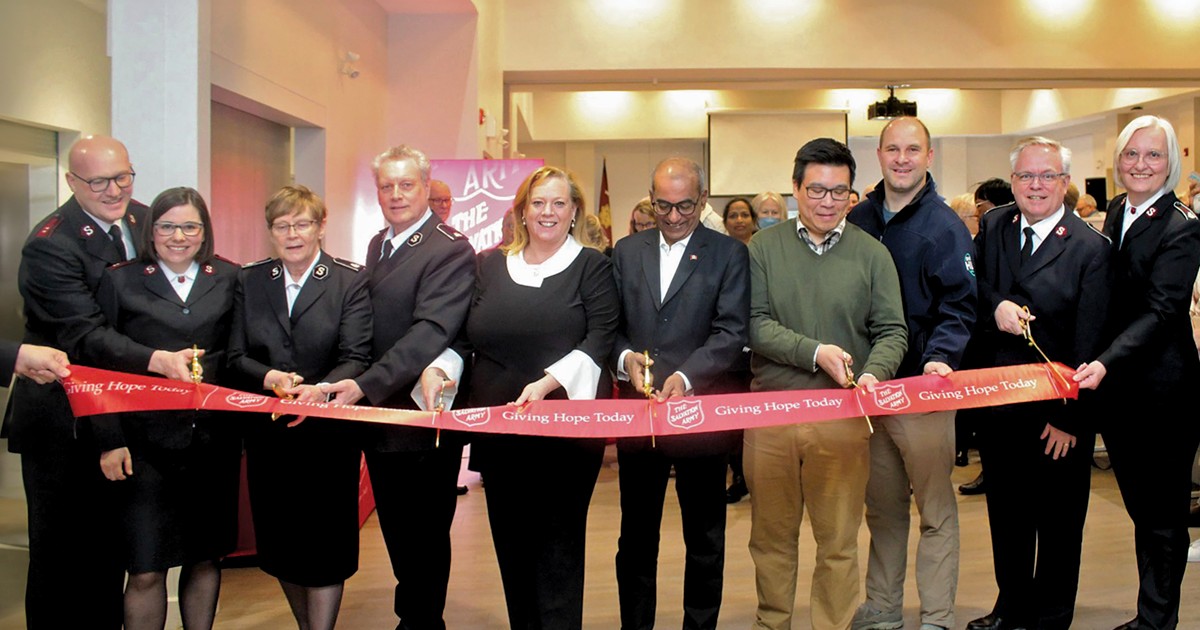 (Photo: © depositphotos.com/nata-art)
(Photo: © depositphotos.com/nata-art)
An older Salvationist once told me that when she joined a non-denominational Bible study for seniors, she was embarrassed to tell the other members that she attended a Salvation Army corps. I was quite surprised. What on earth could be shameful about that? I have always found that people commend me for being involved with the Army. True, they usually have no idea what it really means, but they find it respectable—laudable, even. “You do such good work,” they tell me.
I pressed the woman to find out why she felt as she did. “Oh well, you know,” she said. “It isn't very sophisticated to be with the Army now, is it?” I was bemused, but listened on. I learned that her friends remembered when soldiers were people from “the streets” and the Army was a church where society's undesirables were not only welcomed, but made to be integral members. If you were part of the Army, you must have come from undesirable stock.
For my generation, however, Salvationists are seen as good citizens who reach out to the needy. Salvationists aren't necessarily themselves the needy or even the formerly needy—as the public sees it—and this is largely true. We are the adequately educated, gainfully employed, capable and good-hearted people who offer a hand up. It is no longer assumed we are the poor and dejected. It's assumed we help the poor and dejected.
In many Army congregations, there is actually a mix of people from all walks of life. There are well-off people and poor people, educated people and high school drop-outs, ethnic minorities and the local ethnic majority. But most of the people who are in leadership (lay leaders and otherwise) and who are part of the “in crowd” are like me: raised in the Army, never having lived in poverty, educated and employed.
There is something positive about this. It means that the great experiment by our Founders, General William and Catherine Booth, worked. In the nascent days of the Army, they scraped the hardest cases from the streets and turned them into lovers of Christ and, as a result, responsible citizens. This reform meant the children of those converts were a bit better off. And the following generation was better off than that. It isn't my family's story, but many of my friends can trace their roots back to the moment when one of their ancestors was gloriously saved from a life of debauchery. What wonderful success! Instead of a continuous cycle of ruinous living, the Army effected an upward trajectory in many families.
But where does this leave us now? Are we still the church where the man in rags is equal to the woman in cashmere? Are those who sleep in cars welcomed as much as those who drive up in them?
Many of our centres of worship have left the ugly parts of town and moved to the tree-lined streets. I can't help but wonder if the people who live in their cars feel comfortable making their way to suburbia to worship with us. Had our Founders opened fire amid England's country estates, where no street urchin would ever wander, what would our story have been?
Maybe this is the natural evolution of things. Maybe we've cleaned up, grown up and become a church for healthy persons in a pleasant environment. There's nothing wrong with that. Everyone needs Jesus—from the alcoholic on skid row to the Real Housewives of New Jersey. There is nothing unchristian about nestling in beautiful places, opening church doors and finding that mostly beautiful people walk through.
But I think we should bear in mind that if that is where we settle, it means a complete change of identity for our Movement. When our Founders started what became The Salvation Army, they did it so there would be a home for the outcast. While it is a testimony to the Booths' vision that the descendants of their converts are now teachers, lawyers and Salvation Army officers, it is an abandonment of their vision if we teachers, lawyers and Salvation Army officers prefer to worship only with our own kind. If we open our social services doors to all people but make our worship centre doors inaccessible to the poor, who are we? We may be something very good and noble and kind. But are we The Salvation Army?
Can the accomplished people of this world put an arm around those whose lives are in ruin and call them equals? Can they break bread together, even live life together? Can they offer help of all kinds to each other? Can they, in short, be family? If any entity was designed for such kinship, it was The Salvation Army.
Are we still The Salvation Army?
Major Amy Reardon serves at U.S.A. National Headquarters as editor of the Young Salvationist magazine and assistant national editor-in-chief.









The bad part, however, is that I have found there is a line that divides our Corps. Just about every member of our corps is willing to be found helping with our drop-in centre, our soup kitchens, fund raisers for the homeless, night shelters, annual appeals - you name it. However, Sunday must not be touched by "those people".
When I have managed to convince those we help to come along to a Sunday worship meeting, they are not welcomed. They are not made to feel loved. They receive sideways looks, and there are invariably complaints made to the C.O. after the meeting, complaining that "those people" disrupt the meeting, they smell bad, they speak at inappropriate moments, they scare the kids, etc.
We had a chap who used to be a professional musician before he fell on hard times. One Sunday, wearing the 2nd-hand clothes we'd given him the Friday before, he asked if he could play in our band. You'd think someone had just suggested sacrificing a pig on the mercy seat, to hear the reaction.
And so, "those people" don't come back next Sunday.
I have visited other corps, where this is NOT the case. But, sadly, it is well and truly entrenched in the minds and hearts of the people who make up my current corps. I pray their hearts will change - but each time I see this, the more inclined I am to find out what's happening at the corps in the next town over.